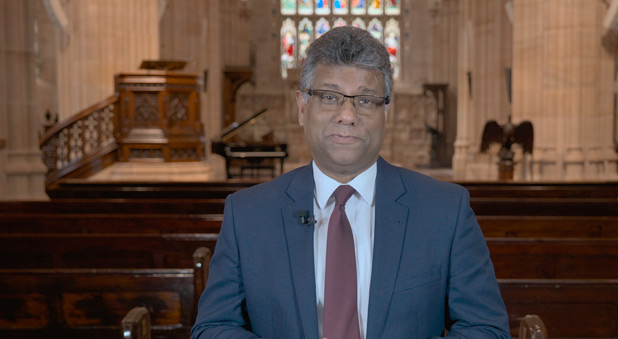The first Sunday of Australian Christianity's new normal has seen hundreds of Sydney Anglican Parishes go online, reminding members of the love of Jesus amid the pressures of COVID-19.
From St Andrew's Cathedral in Sydney Square to suburban St Ives and Castle Hill, west to Rooty Hill and as far out at Lithgow and south to villages like Jamberoo, the message was the same - we are doing things differently but our care for our communities hasn't changed.
"I thank God for Sydney Anglicans who rose to the occasion today and met the challenges of not meeting in churches as they have done all their lives," said Archbishop Glenn Davies.
"Well done to all who enabled the technology of live streaming to beam into our lounge rooms across the diocese. We don’t know how long this will last, but it gives us fresh opportunities to care for people who are isolated and have no access to this technology." The Archbishop paraphrased Hebrews 10, when he said "Let us not give up meeting (even electronically) to stir up one another to love and good works!"
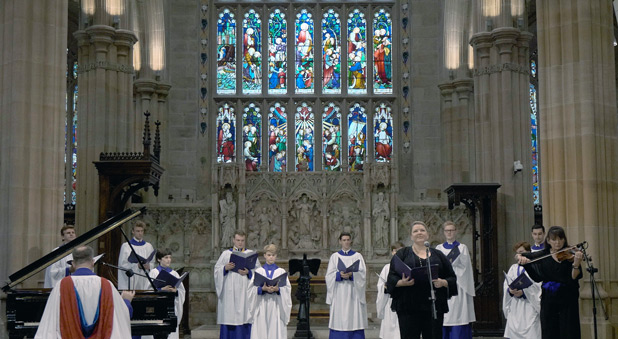
The Dean of Sydney Kanishka Raffel spoke in an empty Cathedral, with just a handful of musicians and readers, observing social distancing.
"Many people are feeling anxious or uncertain," Dean Raffel said on the Cathedral's streamed service on youtube. "It's not only a health challenge that confronts us, it's a social and personal and economic challenge as well. People are worried if they will keep their jobs, keep their businesses open, if they'll be able to look after elderly parents, if they'll be able to hold it all together. Where can we turn when government and business and nations seem to struggle to cope with the challenge? In the face of death, in the face of disease, in the face of uncertainty, in the face of fear and anxiety, there is only one to whom we can turn. One to whom we must turn. Jesus Christ."
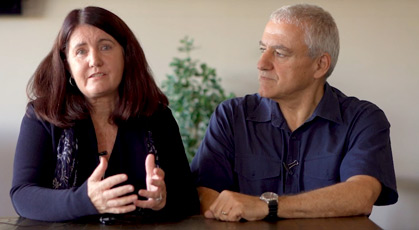
At Rooty Hill, Pastor Ray Galea and his wife Sandy spoke of some practical steps during the pandemic.
Mrs Galea said talking with children was important. "Just ask your kids how they are feeling and then also share how you're feeling, age appropriately of course. Then as a family take those feelings to God in prayer, so depending on him in everything," she said. "Sometimes we are afraid because we don't know the answers to some of thir questions because we don't know the future. But always take them back to what we do know and that Jesus has risen from the dead and our eternal home and our security is found in him. That is unshakeable, so keep taking kids back to that good news that is sure and certain."
At St Ives, the rector Nigel Fortescue emphasised contact with the church, so they can help. "We are doing things a little differently, what is going to be the same is our love for the Saint Ives community and our desire to care for people, particularly in this difficult time," Mr Fortescue said. "You might need something as simple as just a conversation with someone in this period of self-isolation. It's easy to find yourself almost without anyone to talk to."
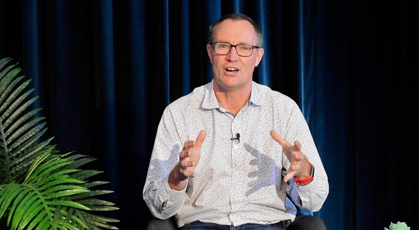
At Castle Hill, churches had been preparing for a major Easter mission, in person, but the COVID-19 closures have seen their ministries go online including music and Sunday services. The church already had sophisticated video facilities so the transition was easier.
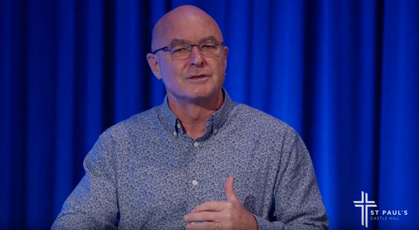
In smaller churches, like the rural community of Jamberoo, things were more difficult. Social distancing also meant fewer participants in the smaller buildings. The rector, Jodie McNeill went online to preach as well as provide his own musical accompaniment.
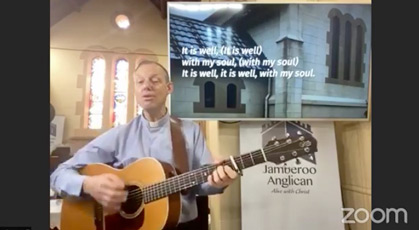
The technical approach of churches varied, with some producing sophisticated video packages for you tube and others using interactive technology like zoom to include worshippers.
Most included the words of songs and prayers so people at home could join in.
Chinese congregations are also online in Mandarin and Cantonese and specific youth services are also online across the diocese.
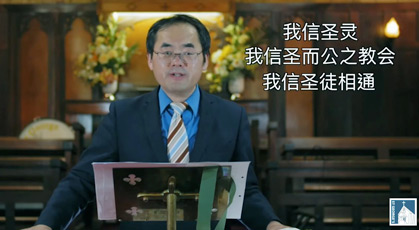 There were opportunities to pray for those most at risk from coronavirus and to address the fears of people because of the rapid spread of the disease.
There were opportunities to pray for those most at risk from coronavirus and to address the fears of people because of the rapid spread of the disease.
At Annandale, the Rector Dominic Steele interview a congregation member, a doctor who has been at the frontline of hospital care of those affected by the virus.
Dr Ed Brentnall said he had to be tested after working in close proximity to people who had COVID-19. "I was swabbed and then had to self isolate till the result of my swab came back. Thankfully, it came back negative a couple of days later, so I only had to isolate for two days. I think it gave me a fresh perspective on someone who was sitting in those chairs nervously waiting." Dr Brentnall said.
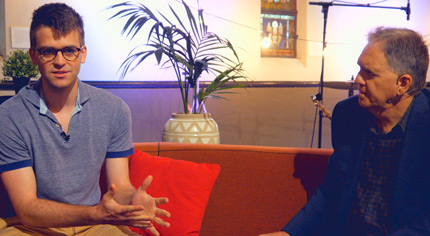
"I think it is an opportunity for us as Christians and for humans in general to realise just how powerless we are before God and how hopeless we are without God. (A situation like this) where people are forced to grapple with the very real prospect of death.... opens people up to have conversations about faith about life after death. I think people are going to be much more ready to talk about and to be real about those topics."

